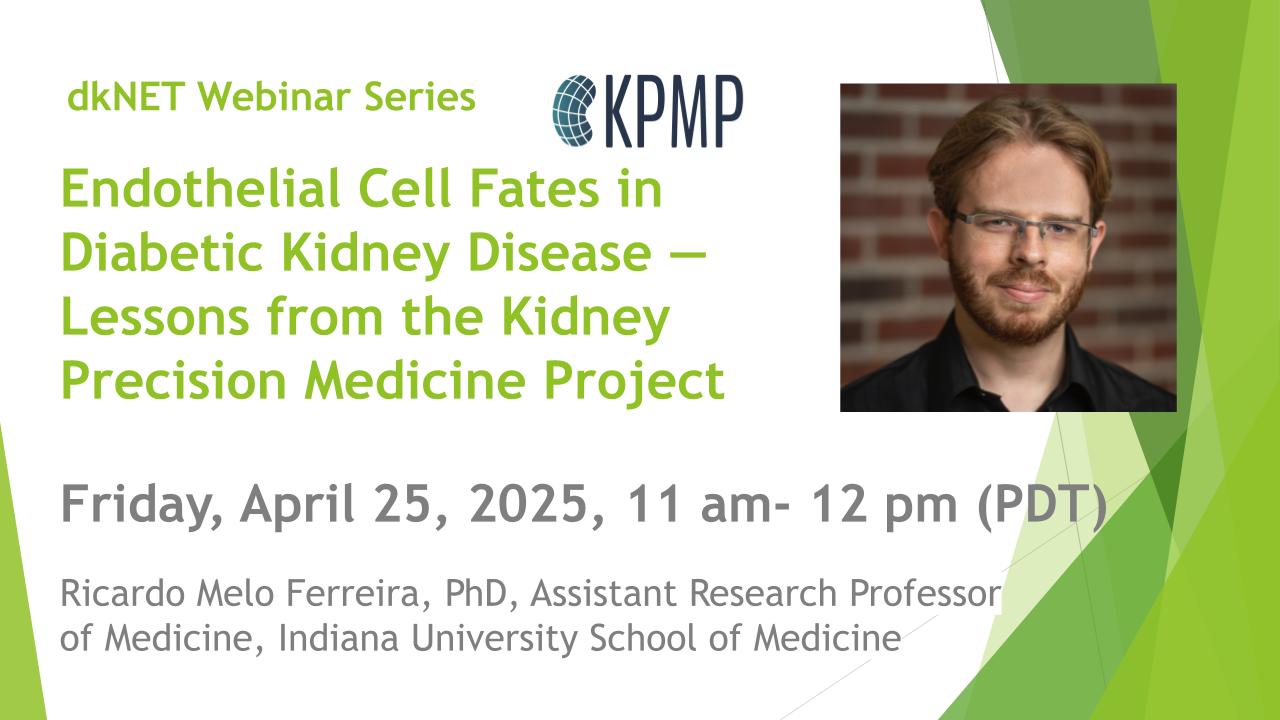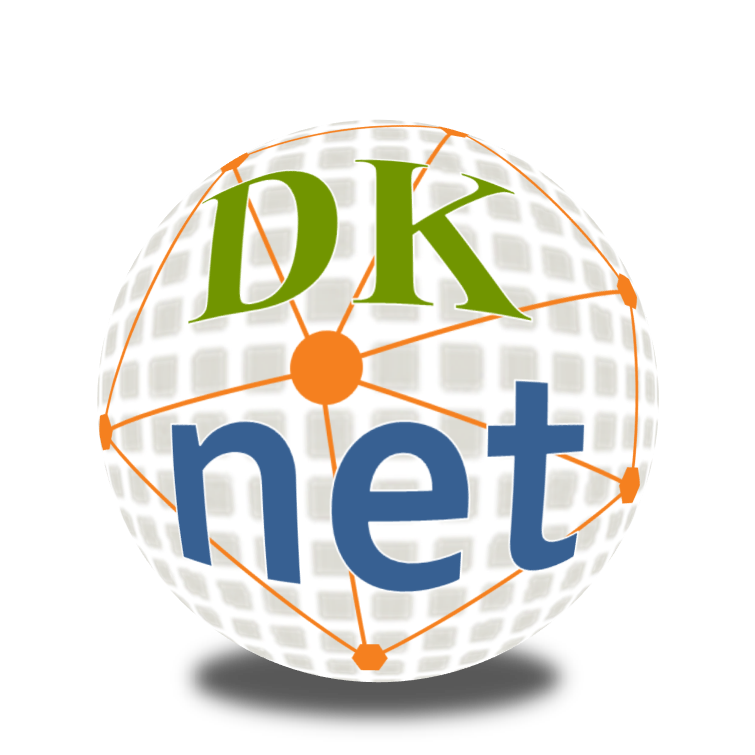Leaving Community
Are you sure you want to leave this community? Leaving the community will revoke any permissions you have been granted in this community.
dkNET community events and announcements in November, 2024
Dear dkNET Community,
dkNET provides updates on activities of interest to the NIDDK-supported community. You could keep up to date on these activities through our Twitter feed @dkNET_info, through our Community Calendar, or through dkNET e-mail list. If you have an event or funding opportunities you'd like to advertise, please contact us info_at_dknet.org.
dkNET News
- New Funding Opportunity - dkNET Pilot Funding Program in AI Models to Accelerate Diabetes Heterogeneity Research: Interested in advancing Type 2 Diabetes research? The dkNET Pilot Funding Program offers support for AI-driven projects focused on T2D heterogeneity. Application due Nov 12. Learn more: https://dknet.org/about/ai-pilot
- dkNET Upcoming Webinar: (1) Mapping the human landscape of metabolite-mediated communication signals between single cells, presented by Dr. Kaifu Chen on Friday, November 8, 2024, 11 am - 12 pm PT (2) “Expanding Human Islet Research via the Integrated Is let Distribution Program (IIDP) Research Data Repository” presented by Dr. Joyce Niland and James Cravens on Friday, November 22, 2024, 11 am - 12 pm PT.
Events in November 2024
Nov. 01, 2024
Abstract Due: HIRN Annual Meeting "Changing the Course of Type 1 Diabetes"
We are pleased to extend an invitation for you to attend our Annual Meeting “Changing the Course in Type 1 Diabetes” to be held in Bethesda, MD on January 13-14, 2025. The meeting will be focused on the concepts of Discovery, Etiology, and Therapy in type one diabetes. This meeting will be unique, and for the first time open to all those interested in the future course of diabetes research, including both HIR N members and non-HIRN affiliated individuals. The agenda will include three scientific sessions over 2-days, breakouts, poster sessions and Keynote addresses are also planned. Abstract submission deadline: November 1, 202 4.
More information: https ://dknet.org/about/dknetnews/2779
Nov. 03-06, 2024
Obesity Week 2024
The preeminent international conference for obesity researchers and clinicians, ObesityWeek® is home to the latest developments in evidence-based obesity science: cutting-edge basic and clinical research, state- of-the-art obesity treatment and prevention, and the latest efforts in advocacy and public policy. Overcoming obesity requires multi-disciplinary app roaches. This is the conference that encompasses the full spectrum of obesity science: from basic science research, to translational research and clinical application, to public policy; from diet, exercise, lifestyle, and psychology to medical and surgical interventions; from pediatric to ger iatric to underserved populations. ObesityWeek® 2024 will be held November 2-6 in San Antonio, Texas. Registration and housing open in June.
More information: https://obesityweek.org/
Nov. 04-08, 2024
20th The Immunology of Diabetes Congress (IDS) Congress Bruges 2024
The major goal of the conference is to bring together basic and translational scientists and pharmaceutical companies and foundations interested in T1D, to share their latest achievements, discuss new developments on mechanisms by which the immune system and pancreas contribute to the development of T1D and how these new insights can lead to better prediction, prevention and eventually cure of T1D. Dedicated time will be allocated to the latest developments in clinical trials and achievements of large consortia in the field.
Location: Bruges, Belgium
More information: https://idsbruges2024.com/
Nov. 08, 2024
dkNET Webinar: Mapping the human landscape of metabolite-mediated communication signals between single cells
Join dkNET Webinar on Friday, November 8, 2024, 11 am - 1 2 pm PT
Presenter: Kaifu Chen, PhD. Associate Professor, Department of Pediatrics, Harvard Medical School
Abstract
Cell-cell communication (CCC) is crucial for cellular function and tissue homeostasis. Due to fundamental differences in the underlying biological mechanisms, existing methods for protein-oriented CCC detection often miss metabolite-mediated CCC (mCCC). To fill this gap, we first developed MEBOCOS T, an algorithm designed on top of scRNA-seq and metabolic flux balance analysis to detect mCCC among single cells. Comprehensive benchmarking analyses based on simulation, spatial, CRISPR screen, and clinical patient data demonstrated the robustness of MEBOCOST in detecting biologically significant mCCC events. We next applied MEBOCOST to landscape analysis and identified 210,215 significant mCCC events from 2 million single cells across 22 8 cell types of 13 tissues, 56 disease states, and 70 biological conditions. Notably, analysis in white adipose tissues unraveled macrophages as the predominant source of mCCC reprogramming in obese patients. Moreover, analysis in mice brown adipocyte tissue successfully recapitulated known and further uncovered new mCCC events, including a glutamine-mediated endothelial-to-adipocyte communication experimentally verified to regulate adipocyte differentiation. The MEBOCOST algorithm and our web portal, MCCP (http://cbp-kfc.org/mccp/), which allows researchers to explore the mCCC atlas easily, will be avaluable resource for metabolism research in diverse biological contexts and disease samples.
The top 3 key questions that MEBOCOST can answer
1. Is there a curated knowledge base for individual metabolite s reported as might mediate signaling events between cells in a tissue?
2. Is there a web portal for biological researchers to easily check individual metabolite-mediated communication signals between cells in any publish ed single cell RNA-sequencing (scRNA-seq) datasets?
3. Is there a computational tool to detect metabolite-mediated communication signals between cells in a new single cell RNA sequencing (scRNA-seq) dataset?
Dial-in Information: https://uchealth.zoom.us/meeting/register/tZArde6orz8iGdKoCg5ysS4C_wm6ONaEouCt
More information: https://dknet.org /about/webinar
Nov. 22, 2024
dkNET Webinar: Expanding Human Islet Research via the Integrated Is let Distribution Program (IIDP) Research Data Repository
Join dkNET Webinar on Friday, November 22, 2024, 11 am - 12 pm PT
Presenters:
Joyce Niland, PhD, Professor & Endowed Chair, Department of Diabetes & Cancer Discovery Science, IIDP Principal Investigator, City of Hope, Duarte CA;
James Cravens, MPH, IIDP Program Manager, City of Hope, Duarte, CA
Abstract
The Integrated Islet Distribution Program (IIDP - formerly the Islet Cell Resource Center Consortium from 2002-2009), is sponsored by the National Institute for Diabetes and Digestive and Kidney Diseases (NIDDK) to provide crucial availability of high-quality human islets, associated tissues, and rich complementary data for diabetes research. As one of the largest islet distribution programs worldwide, the IIDP has supp lied more than 291 million islet equivalents to 594 unique research studies, supporting over 950 peer reviewed publications. The IIDP has improved protocol standardization and methodology, enhanced donor data through reporting genetic ancestry and T1D/T2D risk scores, expanded islet quality and phenotypic information, and provides ancillary tissues matched to the islet s. In 2019, IIDP released the Research Data Repository (RDR) to provide direct access to integrated data across all islet isolations for any approved researcher, including donor information, United Network for Organ Sharing (UNOS) data, islet broadcast details, genetic risk scores and phenotyping results. Via the RDR, investigators can establish search criteria, select desired data points, save searches created, and download a resulting file for data exploration into the relationships between multiple donor fac tors and islet biology. Through its partnership with dkNET and the National Center for Biotechnology Information (NCBI), the IIDP was an early adopter of Research Resource Identifiers (RRIDs) for all IIDP records, to promote data transparency, rigor and analytic reproducibility, a facet that will become even more critical as new advances in artificial intelligence (AI) and machine learning (ML) make expanded, more complex analyses feasible.
The top 4 questions that the IIDP RDR can answer:
1. What characteristics and exposures of the pancreas donor influence a successful islet yield?
2. How does genetic risk for Type 2 diabetes vary with ancestry?
3. What factors impact the composition of the major islet cell types (alpha, beta gamma)?
4. You tell us! The IIDP is offering a new fun ding opportunity through February 2025 for data projects using our Research Data Repository (RDR): the Data Resource Trainee Scholar Award (DRTSA). Pl ease visit https://iidp.coh.org/Resources-Offered/Research-Data-Repository to view the type of available IIDP data and begin to craft your own hypo thesis. Additional information about the upcoming DRTSA will be available at https://iidp.coh.org/DRTSA_2025 in the near future, including eligibility criteria.
Dial-in Information: https://uchealth.zoom.us/mee ting/register/tZcqf-uhqDgoG9EETnvV2RFtRhCIO5fbwZJZ
More information: https://dknet.or g/about/webinar
Funding Opportunities Information and Deadlines in November 2024
Nov. 12, 2024
dkNET Funding Opportunity Application Due: dkNET Pilot Funding Prog ram in AI Models to Accelerate Diabetes Heterogeneity Research
One major challenge in Type 2 Diabetes (T2D) is the enormous heterogeneity associated with the disease. This pilot funding program, through the NIDDK Information Network (dkNET, https://dknet.org), is designed to capitalize on the rapid advances in AI and other data science areas in addressing major gaps in the study of Type 2 Diabetes (T2D) heterogeneity, including opportunities in extracting knowledge from the enormous amount of data and l terature, and in recruiting AI experts to this area of domain science. It calls for multi-disciplinary teams to: 1) develop AI foundation models for T2D; (2) validate the models with top research questions in T2D heterogeneity; (3) disseminate the models and engage the community for further development, validation and application; and (4) develop use cases that demonstrate the models’ potential in accelerating research in diabetes heterogeneity study. The teams are expected to work with dkNET to coordinate their projects, so that awardees can integrate and share products through the dkNET platform.
More information: https://dknet.org/about/ai-pilot
Nov. 12, 2024
National NIH K12 Physician Scientist DiabDocs Program Letter of Intent Due
The National NIH Physician Scientist DiabDocs-K12 Program is now open to scholars who can conduct research at any eligible US institution! The prime objective of our multi-center National NIH K12 “Diabetes-Docs: Physician-Scientist DiabDocs-K12 Program” (DiabDocs) is to support the academic research career development of the next generation of physician-scientists with a specific focus in basic and clinical diabetes. Application due date: January 13, 2025.
More information: https://med.stanford.edu/pedsendo/physician-scientist-diabdocs-k12-program .html#about_us





